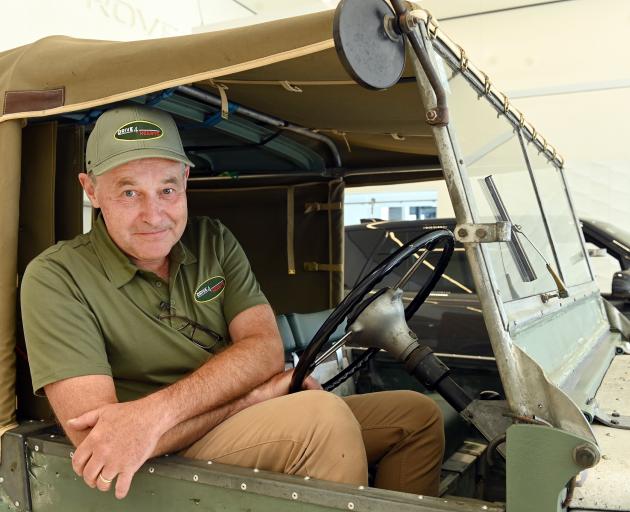Prof Julian Paton set out from Dunedin two weeks ago, driving the recently purchased 1948 Land Rover home to Auckland, with a support vehicle in convoy.
The journey, Drive 4 Hearts, doubled as a fundraiser for the University of Auckland's Manaaki Manawa — Centre for Heart Research, which Prof Paton directs.
On Monday, the vehicle — just the 20th ever made — arrived on Parliament grounds, reflecting a 1948 demonstration where it scaled Parliament’s steps to prove its 4WD capability, Prof Paton said.

"We had permission to drive [the vehicle, nicknamed] ‘Twenty’ ... on to Parliament and to park it next to the steps, but we were told that we should not drive up on to the steps," he said.
However, Act New Zealand leader David Seymour started to drive up the steps when he got in the driver’s seat.
Prof Paton was in the passenger’s seat and said, "before I knew it, Minister Seymour had taken the wheel and we were beginning to go up the steps".
Security intervened — an officer told Mr Seymour that Speaker Gerry Brownlee had said he could not drive on to the steps.
Mr Seymour reversed the vehicle, saying he was not aware the Speaker had not given permission. He defended his actions before apologising to the Speaker yesterday.
"To be honest, what he's done really is a favour for us," Prof Paton said.
"We've now got the publicity that we really need ... let's not get too distracted by the politics here."
The situation meant Drive 4 Hearts had received nationwide coverage, which was always positive, Prof Paton said.
Money raised would fund research into a "revolutionary" new heart valve to treat rheumatic fever — using the patient’s stem cell to construct the valve, reducing the risk of rejection and the need for repeat operations.
"[It’s] good really because it's going to help stop rheumatic heart fever, we hope, a disease we should not have in a developed country such as New Zealand."
Political road bumps aside, the rest of the trip had gone smoothly, Prof Paton said.
"We have a slight oil leak from the gearbox, but we're just nursing her along. But engine-wise, performance is doing very well."
"We've been privileged to see some of the world's most beautiful countryside."
Last night, "Twenty" had made it to Palmerston North and was expected in Auckland on Sunday.
Advertisement













